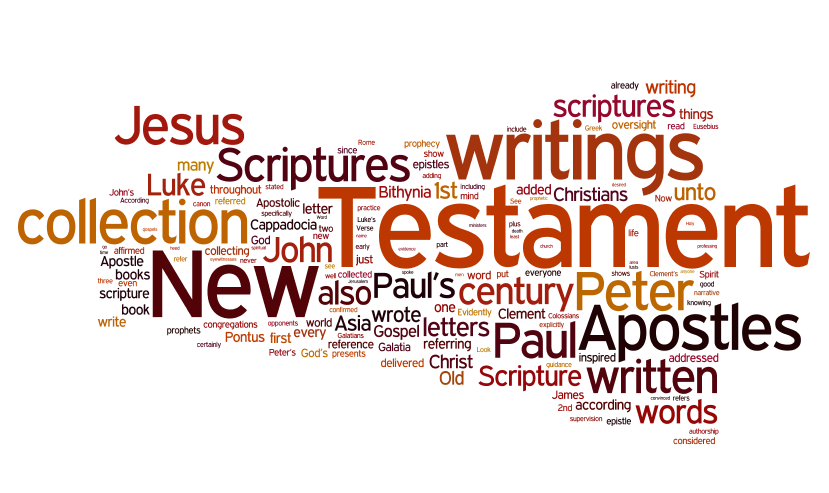
This is the seventh article write-up in the new blog series Encountering the New Testament.
Chapter Summary
- The Gospel of John differs from Matthew, Mark and Luke because 90% of it has no direct parallel with the other three: it postulates a ministry of three years rather than one, it focuses on different parts of Jesus’ teachings, and it emphasises Jesus’ ministry in a different manner.
- John, the son of Zebedee, wrote the Gospel of John in the AD 90s in Ephesus.
- The fact t hat Jesus is God incarnate in human flesh is found in passages that:
- emphasise his divine qualities
- focus on Jesus as God’s unique divine representative, and
- show Jesus as the fulfilment of Israel’s and all humanity’s hopes
- John emphasises Jesus’ human nature in many incidents, including
- traveling with his mother and brothers
- asking for a drink of water in Samaria
- crossing the Sea of Galilee in a boat
- spitting on the ground to make mud for the blind man’s eyes
- weeping over Lazarus’ death
- washing his disciples’ feet, and
- dying and being buried
- John represents the principle of faith in his Gospel and makes clear that only those who believe in Christ will received the gift of eternal life.
- John notes many people who believed in Christ, starting with John the Baptist
- The Gospel of John has many themes but all flow out of the basic truth that Jesus is a divine and human saviour who was sent by God for us to believe in and follow.
Study Questions
1. How is the Gospel of John different from the Synoptics?
The Gospel of John differs significantly from the other gospels in that the material is uniquely John – about 90% in total. Whereas the other Gospels suggested a ministry period of a year, John refers to the period as a three-year period. The focus of John’s writings was very different, and the style of writing was also different. A great example is the beginning where John evokes the parallel of Genesis 1 and creation – “In the beginning”. This style is intentional and helps to create a deeper divine understanding of Jesus being timeless. Jesus as the Word of God is a key theme introduced by John that the other Gospels do not teach on.
2. Why are Irenaeus’ reflections on his childhood important for understanding John?
John the apostle, author of this Gospel had followers himself – amongst this group was Polycarp. Polycarp had in turn helped to disciple and raise the next generation of believers. Irenaeus’s reflections on his childhood reflect this influence and teaching from Polycarp, and therefore John and his Gospel were part of the influence on Irenaeus. Irenaeus himself taught a theology emphasising the unity and goodness of God, and his position was used to defend the faith against Gnosticism. Irenaeus as a church father, had provided comment on the origins of the four Gospels and had spoken much on John being the author of the final Gospel – his position was authoritative given his connection to John via Polycarp.
3. How does John emphasise Jesus’ divine essence?
Jesus’ divinity is wrapped up in the term/identity: Word of God. The Word of God embodies Jesus as the life, light, truth, glory and grace of God. These attributes all collectively emphasis Jesus as the personal expression of God as the Son within the trinity. A lot of the relational aspects of John reinforce the fact that the author was the one disciple whom Jesus’ loved dearly.
4. How did Jesus fulfil Israel’s hopes?
The life and ministry of Jesus collectively fulfilled the hope of Isreal – he preached and taught that the Kingdom of God was near and at hand. Jesus not only taught God’s saving action but lived it out. The performing of miracles to cure blindness, paralysis, leprosy and even water into wine are all manifestations of Israel’s hope being fulfilled.
5. How is Jesus’ humanity emphasised in John?
A consistent theme throughout the Gospel of John is the balance between Jesus as both divine and also fully human. He travelled together with his family – mother and brothers across Nazareth and Galilee. When visiting Samaria, the very simple but human-identifiable need for water triggered the whole dialogue with the Samaritan’ woman – asking for a drink. He needed to travel across the Sea of Galilee via boat, although he also could walk on water… The emotional evidence of Jesus’ reactions to people and events also helped to emphasis he was indeed human just like all of us – he wept over the death of Lazarus, he cried out in the garden of Gethsemane and he took pity on the lost and sick.
6. What is the importance of “faith” in John’s Gospel?
The importance of faith in the Gospel of John is shown to be a dynamic active attribute for believers and followers. John constantly was instructing people to believe” – about 100 times throughout his Gospel, where as the concept of “faith” its not explicitly discussed. Faith was therefore balanced and manifest by action.


You must be logged in to post a comment.